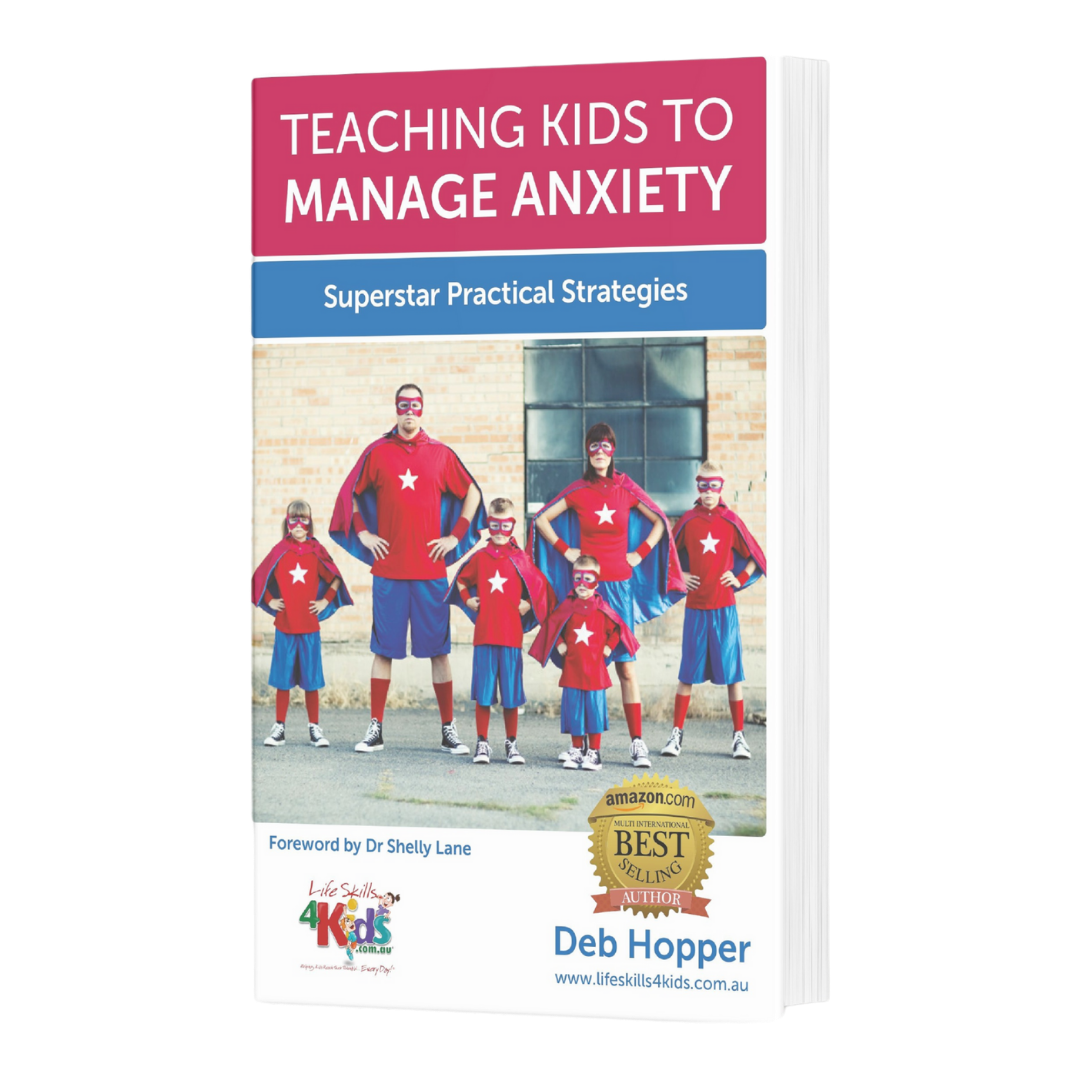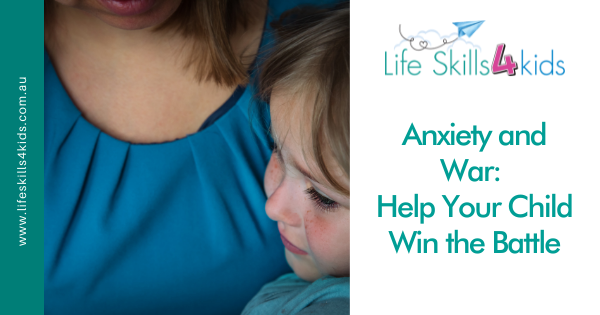Unless you refuse to partake of any form of media, it’s impossible to miss mentions of the war in Ukraine. The TV is constantly bombarding us with images of the conflict, and we see people just like us being forced to flee with their children and pets into a very uncertain future.
Kids see it, too. And it can cause or escalate anxiety, especially for children who are already prone to worrying. Fortunately, parents and carers can take steps to minimize the harm and equip kids with the skills they need to cope.
Being real in a fake world
One of the scarce commodities of this world is the truth, and kids need authenticity more than ever. The tricky part is for parents to know when and how much of the truth to talk about, and to keep it age-appropriate without allowing their own fears or biases to come into the conversation. A young child only needs a broad or vague explanation, while a teen is more likely to want to discuss the details or what it means for them. Both conversations are the truth but are age-appropriate.
What if your child hasn’t said anything about the issue at all? It’s still a good idea to bring up the conversation because it sets the tone for the way your child sees the matter. You can provide trustworthy, reliable information that might be lacking from peers or other sources.
Signs your child is struggling
Children don’t always tell us what’s on their minds, but it’s best to pay attention in case your child is anxious about the war but hasn’t verbalized their worries. Watch out for signs such as:
- Tearfulness
- Being clingy
- Withdrawal
- An increase in non-verbal behaviour
- More worries than usual
- Grumpiness or irritability
Tips for coping
1. Have the hard conversations
Don’t be afraid to start the conversation, especially if you feel that your child is suffering from anxiety over the war. At the same time, take care to keep your language neutral; in our desire for justice for the underdog, we sometimes dehumanize the offender.
Instead, approach it from a big-picture view. For young children, you can explain that war happens when countries don’t get along, just the same as when people don’t get along. Rather than vilifying a certain country or the citizens of that country, point out that everyone thinks it’s unfair when a big person is unkind to a smaller one, and that’s what happens in war. Avoid talk of retaliation, and instead, focus on the positives that have come out of the situation, such as ordinary people being kind to each other.
2. Keep it logical
When a child talks about their worries, teach them to examine how realistic those fears are. Help them to identify their worry, then look for evidence to support that worry (there’s every chance you won’t find any). Use logic to explain why their fears are unlikely to become reality. For example, if a child says they are worried about a bomb falling on their house, remind them that Australia is not at war and there are no bombs here. Don’t allow your own worries or biases to become part of the conversation and keep it factual.
3. Apply context
The TV can make conflicts seem close, especially for young children. So it’s often helpful to put the issue into context by showing your child a map or world globe. You can point out the countries involved and then explain how far away the war is, and how Australia is not involved in the conflict.
4. Avoid taking sides
It’s important to maintain our humanity during times of conflict. The citizens of the invading country are people too, and most just want to live in peace, but through the choices of their leaders, are forced into hardship and isolation.
Kids naturally want to take the side of the underdog, but it’s important to maintain balance and remind them that we are all human, even those who make bad choices that harm others. Some children have a highly developed sense of justice and may want to retaliate, but it’s best to remind them that the best thing to do is allow the other countries to deal with the bullies of the world.
5. Take action
Taking action is a great way of dealing with anxiety, and doing something positive helps everyone to feel better. You can do your part to help those suffering the effects of war by donating, fundraising, attending fundraiser events, or reaching out to any Ukrainian or Russian people who live nearby to offer your support.
6. Set boundaries
Limiting your exposure to the news is a good way to give yourself and the whole family a mental rest from the worry of war. Likewise, you can limit social media time for yourself and your older children, and set times that are free of conversations about worrying events or issues.
7. Talk about your feelings
It’s important to talk about your feelings, and if you’re willing to open up about how you feel, it will often open the way for your child to discuss their feelings, too. Big events produce big feelings such as anger, outrage, or sadness, and it’s important to acknowledge and normalize these responses.
If you would like to know more about how to help your child manage anxiety, you can head over to my website, https://www.lifeskills4kids.com.au/ , where you will find many useful resources and handy tips and tools.
Out of stock
Teaching Kids to Manage Anxiety
Kids today are growing up in a fast-paced world where information and opportunity overload can be overwhelming.
Based on many years of clinical experience as an Occupational Therapist, Deb Hopper has been using her Just Right Kids® Model to teach children to communicate and manage their stress and anxiety by:
- Identifying their “body speed”,
- Understanding their stress triggers, and
- Implementing simple strategies to reduce anxiety and stress.
“This is quite simply the best, most comprehensive and practical bookI have ever read to help teach children – and many grownups – how to manage anxiety. It is written in an easy to read way with lots of fabulous graphics. This brilliant book needs to be in every home, every school and every library.” — Parenting author and educator Maggie Dent
Explore
- How the body reacts to anxiety and impacts on our ability to think and get an action plan together
- How to teach your children to identify when their body and mind is anxious, and how to tell you
- Sensory overload and how this can push children into being anxious
- Strategies to reduce screen time that you can start today (because this will help reduce anxiety in your house and make life more peaceful


